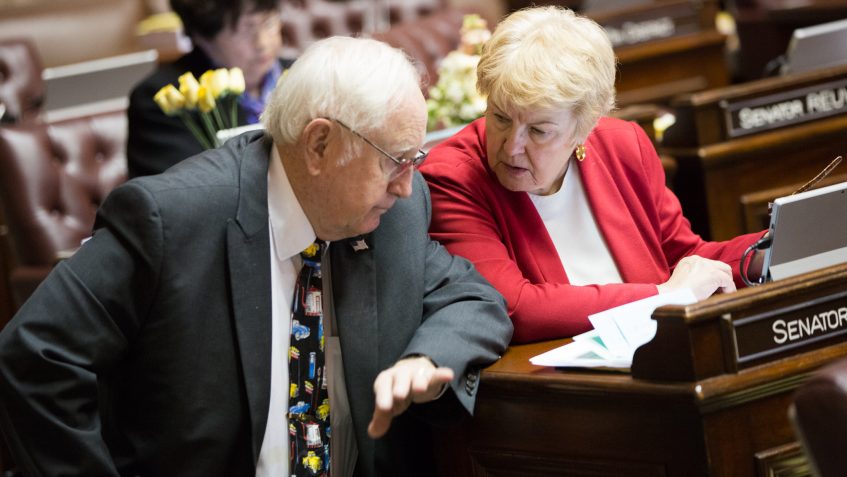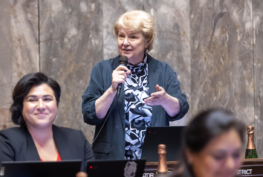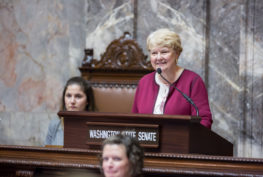Today the Senate agreed with the House of Representatives and approved an update to the state capital budget that will provide funding for new classrooms, mental-health support and environmental cleanup, all without tapping the state’s rainy-day fund. The bipartisan measure was endorsed with a vote of 38-5.
“This past year lawmakers made significant progress on class-size reductions for our state’s youngest learners. Today my colleagues and I agreed to invest an additional $34.5 million toward building more classrooms so that progress can become reality,” said Sen. Jim Honeyford, capital-budget chair.
In addition to funding for construction of classrooms, $5.5 million is provided for the Department of Enterprise Services to purchase modular classrooms for five school districts to further support K-3 class-size reductions. The modular buildings will be constructed of cross-laminated lumber as part of a pilot program encouraging the use of local mass-timber products.
“Supporting mental-health treatment by improving care at our state hospitals and providing more community-based treatment beds for our most vulnerable citizens was important to legislators as we worked through this supplemental budget. We agreed on a plan that does both,” said Sen. Karen Keiser, Democratic capital-budget leader.
The Department of Social and Health Services is slated to receive $7.9 million for institution-based mental-health facilities, including a new ward at Western State Hospital in Pierce County. Another $7.5 million is directed to both urban and rural communities to develop facilities to assist patients as they transition from state hospitals.
“This budget prioritized a number of critical toxic-cleanup projects that were on the verge of being shelved because declining oil prices had reduced revenue in the Model Toxic Control Act account. Now these projects will be able to move forward with stable funding,” said Honeyford, R-Sunnyside.
The Department of Ecology’s Centennial Clean Water program will receive $2.5 million for grants that allow communities to plan, design, acquire and construct water pollution-control facilities.
“I am encouraged by the progress all parties involved were able to make as we came to agreement for this year’s capital budget,” said Keiser, D-Kent. “Although much work remains to be done moving forward, especially relating to major funding gaps for public infrastructure, this budget creates common ground as we look ahead to 2017.”
The measure, House Bill 2380, is now headed to the governor’s desk for his signature.




